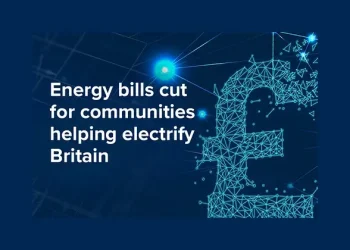The UK government has issued new guidance for decommissioning early Offshore Transmission Owners (OFTOs), providing clarity and reducing uncertainty for the energy sector.
This move, announced by Energy Minister Michael Shanks MP, aims to ensure compliance with regulations and financial security, impacting businesses, local communities, and future infrastructure projects.
Regulatory Framework and Financial Security
The letter from the UK Minister for Energy outlines a clear regulatory framework for decommissioning early OFTOs. It emphasizes adherence to existing UK legislation and highlights the role of the Department for Energy Security and Net Zero (DESNZ) in overseeing these processes.
This guidance is crucial as it reduces legal risks for companies involved in offshore transmission projects. Financial security is a significant focus of the guidance.
The government stresses the importance of robust financial arrangements to cover decommissioning costs, protecting both industry interests and public funds.
This ensures that taxpayers are not burdened with unexpected expenses if companies fail to meet their obligations.
Communities and Industry
The approach affects not only OFTOs but also developers, contractors, and local communities reliant on stable energy supply.
Properly managed decommissioning plans help maintain energy security while minimizing disruptions to local economies. Coastal regions like East Anglia benefit from well-executed transitions as wind farms reach their operational end.
Opportunities Arising from Decommissioning
- Potential growth in recycling industries due to repurposing materials from dismantled infrastructure
- Enhanced environmental protection through proper decommissioning practices
- Increased job opportunities in waste management sectors
- Strengthened community engagement during transition phases
- Improved planning capabilities for future offshore projects
History of Offshore Regulation
The UK’s proactive regulation in offshore energy dates back to the Energy Act 2004, which established requirements for decommissioning renewable installations.
Recent updates have further clarified responsibilities, building on this framework to address early OFTO projects specifically. These measures set a precedent influencing how similar infrastructure will be managed across the UK.
International Influence and Future Challenges
The UK’s approach is closely watched by countries like Germany, Denmark, and the Netherlands as they develop offshore wind capacity. The emphasis on regulatory clarity sets a benchmark for international best practices.
However, managing an increasing number of aging assets poses challenges such as cost overruns or disputes over liability.
Additional Reading
Something to Ponder
This new guidance marks a pivotal moment in managing aging offshore transmission assets in the UK.
By ensuring regulatory compliance and financial security, it sets a standard that could influence global practices while safeguarding public interests against potential liabilities associated with decommissioning processes.
Sources: UK Government, Ofgem, and The Crown Estate.
Prepared by Ivan Alexander Golden, Founder of THX News™, an independent news organization delivering timely insights from global official sources. Combines AI-analyzed research with human-edited accuracy and context.









